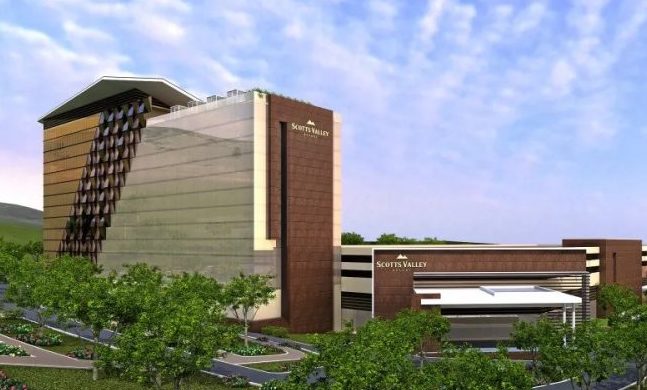
- Details
- By Chez Oxendine
- Gaming
The Scotts Valley Band of Pomo Indians has accused a tribe opposing their Vallejo, Calif. casino project of directly influencing the Department of the Interior’s decision to rescind the project’s Jan. 10 approval.
That approval, which came after nearly a decade of agency review and litigation, was issued in the final days of the Biden administration. After outcry from other tribes in the area, the Department of Interior — under the leadership of Trump appointee Doug Burgum — Interior rescinded the decision on March 27. That prompted the Scotts Valley Band to file suit, alleging that the rescission was illegal.
The Scotts Valley Band’s attempt in June to stop Interior from rescinding the decision was denied by a U.S. District court while the case moved ahead. On July 14, the tribe amended their complaint to directly accuse the Yocha Wintun Dehe Nation of providing drafted reversal language, guiding agency officials on how to proceed with the rescission, and applying pressure to the department.
That proved the decision was “unlawfully and politically motivated,” rather than based on new evidence or legal error, the Scotts Valley Band claimed in an announcement.
“The law and facts are absolutely on our side, so we are confident that the court will uphold our rights,” Shawn Davis, chairman of the Scotts Valley Band, said in a statement. “We won’t be deterred from moving forward and building a better future for our tribe and our neighbors in Vallejo.”
Anthony Roberts, chairman of the Yocha Dehe Wintun Nation, called Scotts Valley’s allegations a distraction from a lawful reconsideration process. He said DOI “realized its error” in initially excluding Yocha Dehe and other tribes, then opened a fair process for all parties to submit evidence.
“Vallejo is Patwin territory, and it always has been,” Roberts said in a statement. “We are confident the final record will reflect that. Scotts Valley has no claim here – and their latest statement even admits this is not their ancestral homeland.”
The Scotts Valley Band project is one of several attempts by tribes to build casino projects far from their current reservations. These tribes buy land distant from their current reservation boundaries and seek to place the land into federal trust under a special classification called “restored lands,” or lands that have historic ties to the tribe in question.
Federal law typically bars new trust lands from casino development under the Indian Gaming Regulatory Act of 1988, but “restored lands” have no such restriction.
The Koi Nation, also in California, and the Coquille Tribe in Oregon have also used the process to try and start new projects. All three of these projects have faced stiff opposition from other tribes. Complaints include worries that new casinos would cannibalize existing ones, and that the tribes acquiring these lands don’t have the ancestral ties they claim, according to prior Tribal Business News reports.
Approvals for all three projects were issued in the waning days of Biden’s administration, setting up the subsequent battle for the Trump administration to sort out. The Scotts Valley case could prove to be an indicator for decisions down the line. In the meantime, the tribe has pledged to continue fighting for their project, Davis said.
“This isn’t just about a gaming project,” Davis said. “It’s about fairness, tribal sovereignty, and the fundamental right of our people to move forward without being undermined by backroom lobbying.”
